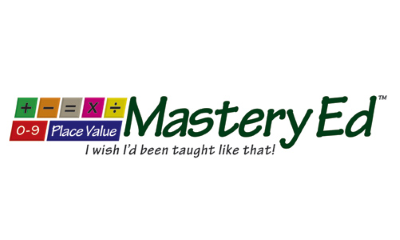
MasteryEd Math
Throughout the past several weeks, on our cruise of the EdTech conference circuit, we’ve seen a ton of math-based software and products. However, one of the best we have seen was also one of the most straightforward and low-tech. During the National Association of Elementary School Principals (NAESP) conference in Nashville last week, we had a chance to check out MasteryEd.
MasteryEd is a common-sense approach to mathematics. Rather than just having students drill away at arithmetic and learn through memorization, MasteryEd argues that student should learn through, you guessed it, mastery. But just what is mastery? Well, Dan Sinclair – the president of MasteryEd – argues that it is much more than simple memorization. Mastery is more of a process than a skill:
Therefore as we can see the question of “What is Mastery?” is more procedural even by itself. In mathematics the problem is that arithmetic levels build upon themselves. Students start with the Counting level to gain number sense and recognition, then move on to the higher skill levels of Addition/Subtraction, Multiplication/Division, and then Exponents/Roots as examples of more complex processes in arithmetic. You can’t move from one level to the next without understanding the previous level to mastery, or the foundation will be weak.
Students need to master the skills needed at each level, including complex applications of those skills, in order to become a true master of their craft. This is where the student’s ability to teach others what has been learned is a critical demonstration of mastery. Teaching back demonstrates the student’s ability to grasp the problem, choose a process, develop a solution, and articulate the reasoning behind their choices, or it reveals where there are gaps in their understanding.1
That sounds a little complex. Howver, we had a chance to speak with Dan at NAESP last week. He gave us a very straightforward explanation, and a simple way to think about it:
- MasteryEd.com, “What is Mastery?” ▲

